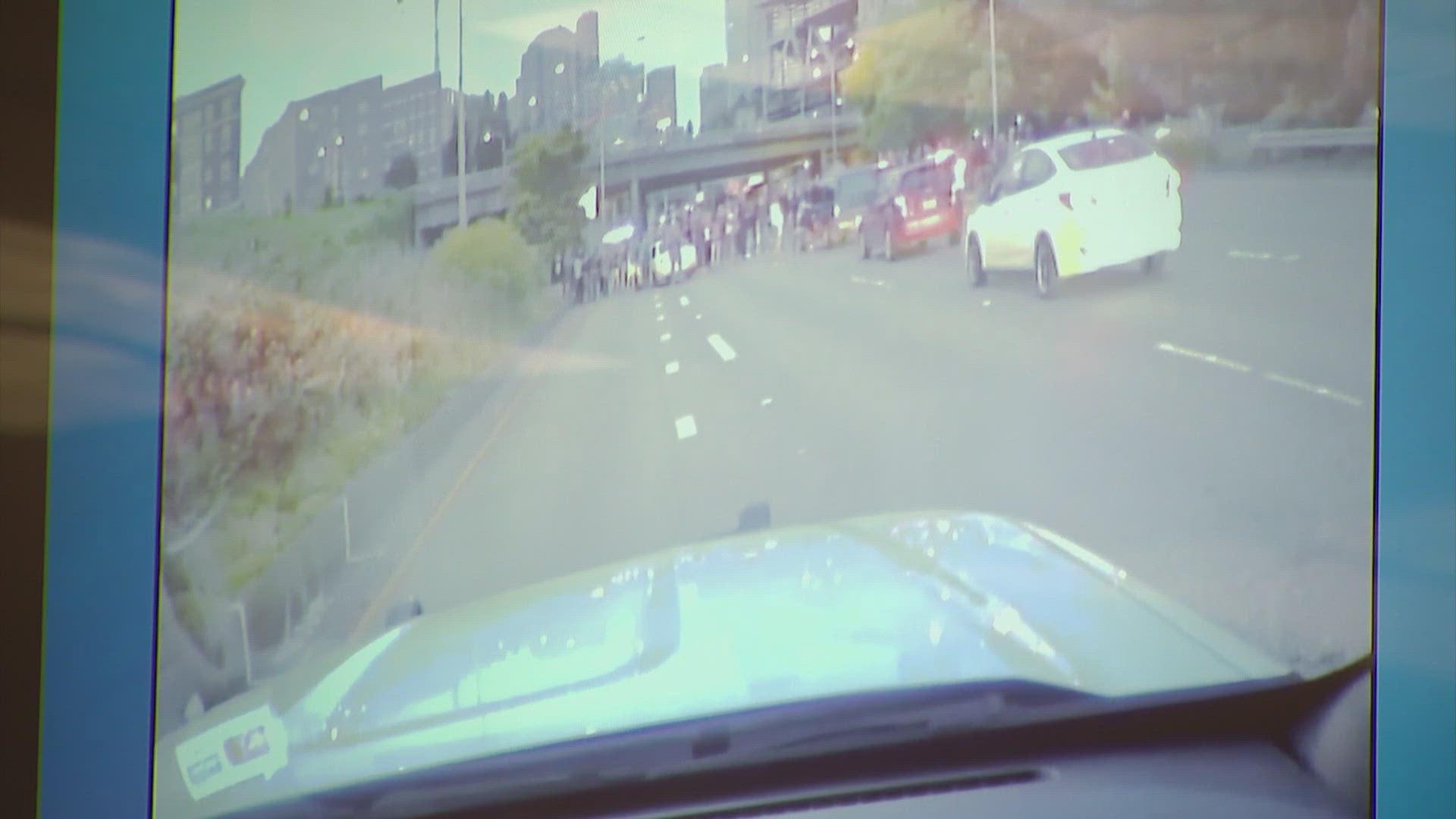SEATTLE — A jury will soon decide whether the state of Washington is at fault in the death of a protester who was killed on Interstate 5 in 2020. The civil trial began two weeks ago. On Monday, attorneys delivered closing arguments.
"I believe that the number is 24 because that is how old Summer was,” said Attorney Karen Koehler.
Koehler says $24 million is what the Estate of Summer Taylor should receive after what happened four years ago. In July 2020, Summer Taylor was with a group of protesters, demonstrating on the freeway, when a driver hit and killed Taylor.
Koehler told jurors about the origin of the freeway protests.
"On May 30th, five days after George Floyd was killed, there are massive protests in Seattle,” Koehler said.
Jurors were shown photos and video of protesters on I-5. Over the course of three weeks, the protests would happen regularly, Koehler said.
"The state made a decision to change its rules. The rule had been, keep the protesters off the freeway and arrest them,” said Koehler who added that Washington State Patrol started allowing protesters to be on I-5.
Steve Puz, the attorney representing the state, says the protests happening at the same time as the pandemic meant the jail would not take the demonstrators.
"You can't arrest, and they are threatening to endanger their own lives and the lives of innocent people every day. The state patrol was left with one option, and that option was to close I-5 to everyone,” Puz said.
In July, Summer Taylor was protesting on the freeway. Troopers closed a section of I-5 in Seattle.
"They made the intentional, deliberate, absolutely knowing, but apparently uneducated decision to leave the ramp, the access ramps, whether they are offramps or onramps, the access point to a freeway, they left them open,” said Koehler.
Investigators say Dawit Kelete was impaired and drove onto an offramp. He collided with the protesters, injuring one and killing Taylor.
The state argues the driver is the one at fault and says protesters should never have been on the freeway.
"They are blaming the state for not stopping their criminal conduct,” said Puz.
After closing arguments, the judge told jurors not to rush to a verdict but instead consider what's been presented to them over the last couple of weeks.

